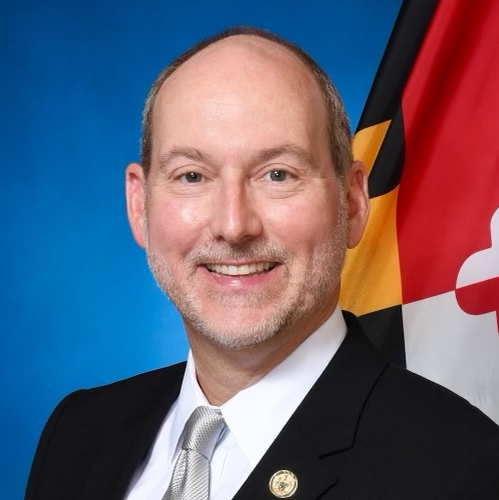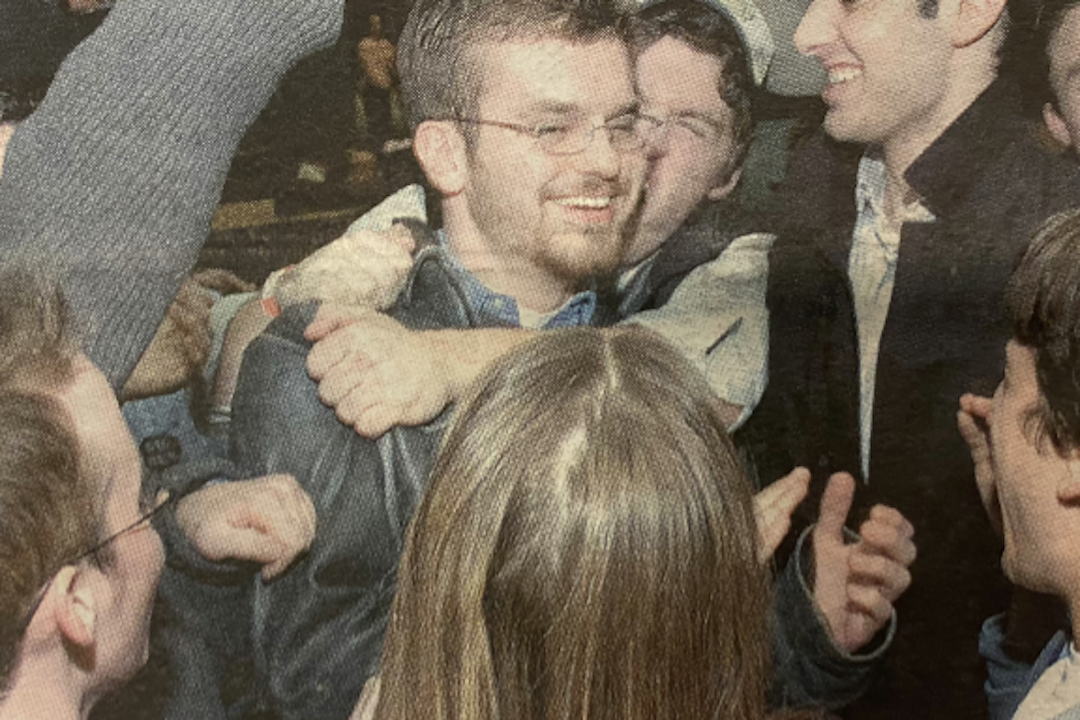Ron Gunzburger’s first campaign was personal.
In 1982, Gunzburger was studying political science at GW when his mother, Suzanne, decided to run for a spot on the City Commission in Hollywood, Florida. Gunzburger had two more years until graduation, but he leapt on the opportunity to enter the political fray by serving as an informal campaign strategist for his mother — who he called an “underdog” in the race.
He said his mother was running on improved child care and environmental protection, among other topics. She was expected to lose because her opponent had outraised her and collected more major endorsements, but Gunzburger, tasked with designing his mom’s campaign mailers, was determined to clinch a victory.
His mother won the race in the liberal Miami suburb by heavily canvassing overlooked single-family homes instead of condominiums, where the Democratic Party officials would go to try to turn out as many votes in concentrated areas.
“Something like that is personal, because God knows if you actually lose your own mother’s campaign, you’ll hear that forever,” Gunzburger said. “And she ended up shocking everyone by winning.”
More than four decades after he helped his mom to victory, the GW alum has become a campaign veteran. Gunzburger founded candidate information site Politics1 and has helped advise more than 130 political campaigns — including all his mother’s races as she ascended the political ladder of Broward County, Florida.
Gunzburger began his foray into politics as a college student employed on the Hill, where he worked as a legislative assistant for Rep. Richard Gephardt (D-MO) and later for Rep. E. Clay Shaw (R-FL), who was the rising politico’s hometown representative. After his graduation, politicians and candidates sought to hire Gunzburger for his work championing his mother’s campaigns, he said.
“Honestly, I was not the most phenomenal student in that I wasn’t great at showing up for classes, nor did I do all that much studying,” Gunzburger said.
After graduating from Vermont Law School in 1987, Gunzburger worked various positions as an attorney, serving as a public defender, an assistant attorney general, a law firm attorney and eventually as the general counsel of a sheriff’s department in Florida. As a lawyer, he continued to strategize for campaigns with heavy underdogs every election cycle because he enjoyed knocking off incumbent politicians.
He said his favorite campaign was one he lost: future Republican Maryland Gov. Larry Hogan’s failed 1992 bid for the state’s fifth congressional district.
“I joke that any consultant who can’t tell you one of their favorites that lost probably wasn’t that great at consulting because they never took a risk,” Gunzburger said. “Every consultant has their favorite losing campaign story.”
Gunzburger said he wore different hats on Hogan’s campaign, acting as the challenger’s campaign manager and spokesperson. He said the race was especially difficult because the incumbent, Democrat Steny Hoyer, was better funded and carried every county in the district during the previous election. Hogan’s long odds in the race made Hoyer’s eventual narrow win an accomplishment, he said.
“When Hogan challenged him in ‘92, we ultimately ended up getting outspent by a margin of six to one, and we couldn’t even afford TV,” Gunzburger said. “Holding the incumbent to 53% was pretty amazing.”
In 1997, in the middle of bouncing between campaigns, Gunzburger created Politics1, an online directory of national and state political candidates to make “political information readily accessible” and allow voters to research candidates without the tedious task of navigating poorly designed local Secretary of State websites.
He said CNN and Time Magazine created a similar site but abandoned the project, so he decided to create his own candidate tracker to take its place.
“I essentially said ‘I can do that,’” he said. “And I got one of those ‘HTML Coding for Dummies’ books and figured out how to do the most basic coding and do the most basic graphic design.”
The website — which, as Gunzburger describes it, looks like it has “not changed much” since its creation in 1997 — is decorated with pictures of old campaign pins for each state. On the page for Delaware, just above the list of candidates running for this year’s open Senate seat, is a picture of now-President Joe Biden’s 2002 Senate campaign poster, featuring the smiling incumbent next to “Joe” in large letters. (In what might seem all too familiar a situation, Biden in that race was facing his opponent from the previous cycle, businessman Raymond Clatworthy.)
Gunzburger manages the information on the site by checking Federal Election Commission filings and state election filings daily, as well as crowdsourcing from readers and reporters who send him campaign updates. He said fans of Politics1 will often send him news stories and other reports of rumored candidates for him to post on his site, which he displays in a different text style than candidates who have officially announced.
“I’ve almost described it as Tom Sawyer painting the fence where a lot of folks have do a lot of the work,” he said.
During the 2000 election cycle, Politics1 attracted 800,000 page views per month and 10,000 subscribers to its newsletter, Gunzburger said. He said the Politics1 X account, which has more than 13,000 followers and posts campaign information and political news, now has a larger following than the website.
In Gunzburger’s 40 years as a political consultant, some things haven’t changed. The GW alum’s old ties with Hogan roared back more after decades in 2015, when Gunzburger joined his gubernatorial administration as a senior adviser and wrote speeches, helped manage campaign messaging, coordinated polling and served as the director of the state’s COVID-19 response strategy. Hogan is now back in the spotlight again, this time running for Senate.
Gunzburger said he is confident the country’s institutions won’t change either, regardless of who wins the presidency in November. The country survived the election showdowns of John Adams and Thomas Jefferson in the 1800s and the partisan battles during the Vietnam War — all races that he said were just as polarizing as the one voters face in 2024, he said.
“I still believe in our constitutional guardrails,” Gunzburger said. “We’ll come out the other side, and there’ll be another election, and we’ll move on.”





